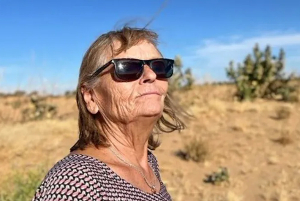The Office of the Special Prosecutor (OSP) has rebutted claims suggesting the exoneration of former Sanitation Minister Cecilia Dapaah before transferring her case to the Economic and Organized Crime Office (EOCO).
Amid allegations of corruption and corruption-related offences involving their domestic staff, who reportedly pilfered significant sums of local and foreign currency along with personal belongings belonging to Ms. Dapaah and her husband, the OSP conducted an extensive investigation.
After several months of probing, the OSP concluded its inquiry, citing the predominant involvement of money laundering, and subsequently transferred the case to EOCO.
However, the Attorney General's office advised EOCO against further investigation, citing insufficient documentation to support a money laundering prosecution and ongoing police inquiries into the funding sources of Dapaah.
In its advice, the AG acknowledged that while EOCO retains the authority to initiate its own investigation, it was "not necessary," citing the lack of substantive grounds.
"In the absence of the identification of any criminality associated with the properties retrieved from the suspects, the OSP's referral to EOCO for investigations to be conducted into money laundering is without basis," the Attorney General's office advised.
Subsequently, the Attorney General explained that Ms. Dapaah was exonerated by the OSP and not his office.
In response, the OSP clarified that it did not absolve Ms. Dapaah of corruption-related charges, stating that the investigation primarily uncovered instances of money laundering.
They emphasised the lack of a request from EOCO for the FBI investigation report and underscored the confidentiality clauses therein.
The OSP's Director for Strategy, Research, and Communications, Samuel Appiah Darko, elaborated on their decision to refer the case to EOCO rather than pursue a money laundering probe independently.
“We want to make it very clear that EOCO did not request for the FBI report. Even if they did, the FBI report has a lot of confidentiality clauses that were directed, particularly to the OSP, and you can’t just give it to another agency because you have transferred the case. There ought to be a lot of inter-agency collaboration and clearance. So if it had happened, we may have triggered the clearance clauses so that either we are cleared by the FBI or the FBI sends the report directly to EOCO,” Mr. Darko said.
“The OSP should be considered a whistleblower to EOCO. So as a whistle-blower, we gave EOCO platinum information. Ordinarily, you will not even find other agencies giving such information to EOCO.”
“Our referral is not just in respect of a transaction in America. Also, we were not conducting a money laundering investigation; we were conducting a corruption investigation. We are of the opinion that we had all it took to send that referral to EOCO because there was no way we could have proceeded and then investigated and written a report on money laundering and sent it to EOCO for onward transfer to the Attorney General. We only referred a matter to EOCO as whistle-blowers for EOCO to investigate. We cannot instruct EOCO on what they should do,” he added.
General News of Monday, 6 May 2024
Source: classfmonline.com
We didn’t exonerate Cecilia Dapaah – OSP debunks AG’s claim
Entertainment












